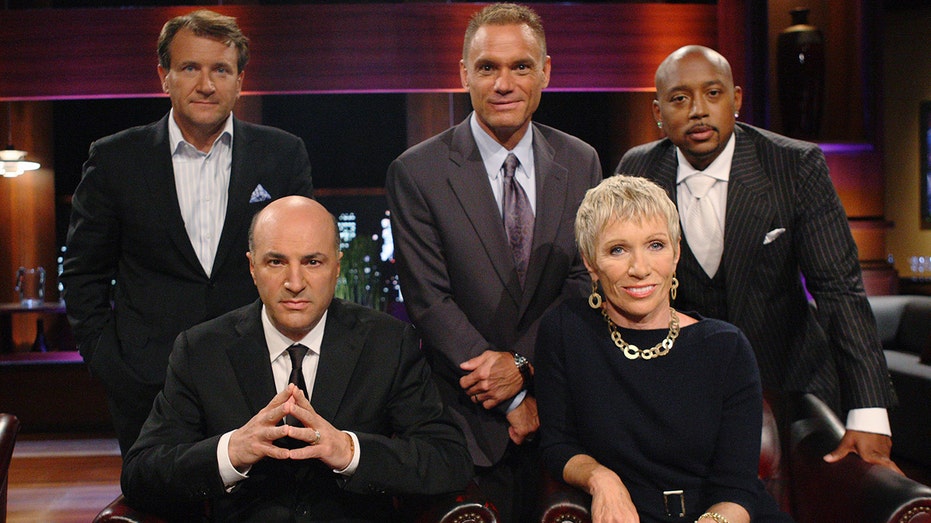'Shark Tank' stars reveal key sector for growth amid stifling interest rates: 'Slow way to get really rich'
Barbara Corcoran, Daymond John and Kevin O'Leary joined 'The Claman Countdown,' Tuesday
Sharks share keys to success for entrepreneurs in tough economic times
‘Shark Tank’ stars Daymond John, Barbara Corcoran and Kevin O’Leary discuss a variety of topics on ‘The Claman Countdown,' including how to build a business in difficult economic times and the current retail demand.
Real estate was a common investment subject raised during a recent panel of "Shark Tank" investors on FOX Business on Tuesday.
With interest and mortgage rates through the roof, stifling the ability for working-class people to purchase homes and businesses to expand, some of the "Sharks" cited a newer, growing sector within real estate many may overlook.
Barbara Corcoran, whose Corcoran Group focuses on real estate, said that when it comes to brick-and-mortar retail, despite the collapse of the 1980s-90s mall era, "people are back" to shopping in-person after going online during the pandemic.
"The shopping malls are in trouble. The big box stores aren't doing so well," Corcoran said on "The Claman Countdown."
Malls have been in decline for several years, including the 2007 razing of the sprawling Landover Mall outside Washington, D.C., and the reported potential foreclosure of the nation's 12th largest mall, the Palisades Center outside New York City – originally a major draw for weekend shoppers seeking to avoid neighboring New Jersey's Blue Laws that kept other retailers closed.
SHARK TANK STAR WARNS REAL ESTATE DOOM LOOP HAS NOT IMPROVED
"What's the most popular space to find right now? Small retail," said Corcoran. "And they're acting differently. They're almost like a showroom for what they sell."

Shark Tank investors Robert Herjavec, Kevin Harrington, Daymond John, Kevin O'Leary and Barbara Corcoran ( Craig Sjodin/Disney General Entertainment Content via Getty Images / Getty Images)
"People love to shop. Everybody wrote it off. Guess what? Everybody was wrong"
Fellow "Shark" Kevin O'Leary, CEO of O'Leary Ventures, added that he has invested in one particular facet of the retail market he sees as a potential boom amid the current economic conditions.
O'Leary said "small-format" retail has been a successful venture in many cases, including a New York City dumpling shop that features a kiosk-and-barcode setup allowing for a smaller footprint along with customer convenience.
"I find that new small formats in sync with the Barbara saying – I'm getting into a restaurant business actually started here in New York: Brooklyn Dumplings, [which is] 400 to 600 square feet [and] automated," he said.
"So, [there's] less staff; food costs are lower. But I'm finding demand for that in every city because it's a small footprint."
Host Liz Claman agreed that the small-footprint real estate format is becoming popular.
REMOTE WORK COULD WIPE OUT $800B FROM OFFICE BUILDING VALUE BY 2030
Kevin O'Leary: If Sam Bankman-Fried pitched FTX to 'Shark Tank' it would never make it
O'Leary Ventures chairman Kevin O'Leary discusses his relationship with Sam Bankman-Fried and if he would still back the alleged fraudster after the collapse of FTX on 'The Claman Countdown.'
O'Leary said he wants to direct his investments in a form that is half direct-to-consumer and half retail-to-consumer, to acquire more customers overall.
"Shark" Daymond John, who founded the successful FUBU clothing brand in his mother's basement, added he also sees retail bouncing back.
"Amazon: 48% up year to date, the NRF (National Retail Federation) has expected another 4% increase. People are at home now. They're working on computers at home. They want to see people. My staff is probably half the time at the mall during the time they should be working," John said.
"But you have to give people a different experience, right? You have to go into a world where you're given an experience."
He said that, in an age where everyone is online, big box retailers like Macy's should livestream what people are buying in their stores as a way to attract consumer attention and consumer interest in returning to their brick-and-mortar locations.
"It needs to be a place where people are going and they're experiencing something they cannot get anyplace else," he said.
COMMERCIAL REAL ESTATE CRASH STILL LOOMING OVER US ECONOMY
Commercial real estate is ‘in trouble’: Barbara Corcoran
The Corcoran Group founder Barbara Corcoran discusses issues facing the real estate market, warning the commercial market will see a 'bloodbath.'
In regard to stock investments amid a general selloff in the markets over the past month, John said he seeks out companies that provide the consumer a full "universe" of resources and options, like Apple.
"Apple creates a universe. You go in there, you buy something that has a fitness component like a Peloton and you watch TV and you have your watch on and you can track your child – I'm into things that create a universe," he said.
Corcoran said she limits her stock investments to 30% of her portfolio, remarking "I like finding my own gods to serve."
"And for me, that's real estate: I used to invest only in New York the last five years I've spread out into three different cities where the returns are better," she explained, remarking that real estate is the "slow way to get really rich."
The new cities Corcoran has invested in are Columbus, Ohio, Pittsburgh, Pa. and Indianapolis, Ind.
O'Leary said he prefers to use stock indices, adding that he has created several himself that he invests in through O'Shares.
"I have European indexes, tech indexes, a derivative of the S&P. I want diversity and stock-picking is really hard – really, really hard. Rules-based indexing I think is the future that's for me," he said.
"So I don't worry about it. I know the market's volatile, but I own the best stocks in the index and I just sit back and let them do their thing."
For more Culture, Media, Education, Opinion, and channel coverage, visit foxnews.com/media.






















